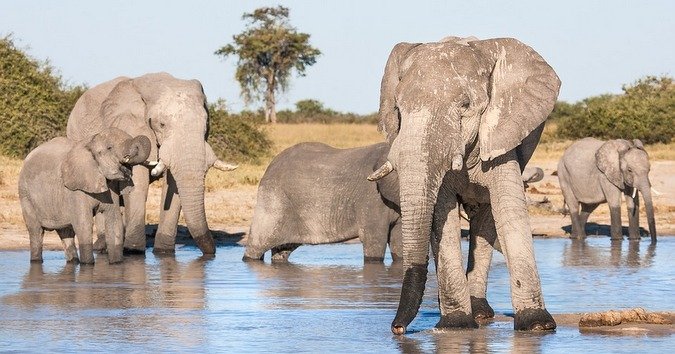Botswana has issued 400 elephant hunting licenses for the upcoming season, drawing sharp criticism from conservationists who argue the practice threatens wildlife populations and provides little benefit to local communities.
The hunting season, running from April to November, attracts international hunters willing to pay up to $50,000 per license for the chance to hunt one of Botswana’s elephants. Despite growing global opposition to trophy hunting, Botswana continues to defend the practice, citing its economic benefits and contribution to wildlife management.
Oaitse Nawa of the Elephant Protection Society expressed disappointment over the decision, noting that conservationists had petitioned the new government, elected after the October 30 general election, to halt the issuance of hunting quotas.
“We petitioned the government to pause the elephant quota because there wasn’t sufficient consultation with all stakeholders,” Nawa said. “The release of this hunting quota was a big surprise to us.”
While the government held consultative meetings in December to determine the quota, Nawa insists hunting offers minimal community benefits and calls for a comprehensive review of the practice.
In contrast, the Botswana government highlights the economic significance of trophy hunting, revealing that communities earned nearly $3 million from elephant hunting licenses during the previous season.
Supporters of trophy hunting, including Isaac Theophilus, CEO of the Botswana Wildlife Producers Association, argue the practice is highly regulated and selective, targeting older bulls beyond their breeding prime.
“The petition is misguided. Trophy hunting does not impact breeding bulls or the overall elephant population,” Theophilus said.
Wildlife biologist Dr. Erik Verreynne echoed this sentiment, explaining that the annual hunting quota of 400 elephants represents a tiny fraction of Botswana’s estimated 130,000-140,000 elephant population and is unlikely to disrupt breeding patterns.
“Hunting may temporarily alter herd movements in specific areas, but it will not significantly affect population growth or breeding rates,” Verreynne said.
Botswana, home to the world’s largest elephant population, lifted a five-year hunting moratorium in 2019, citing rising human-wildlife conflict as elephants increasingly encroach on human settlements in search of water and food.
As conservationists and government officials continue to clash over the issue, the debate underscores the delicate balance Botswana must maintain between wildlife preservation, community development, and sustainable tourism.









